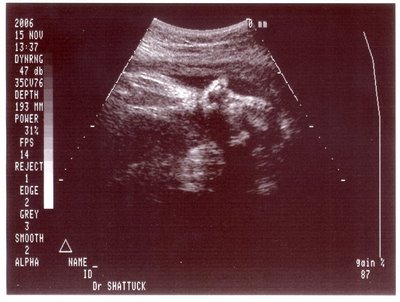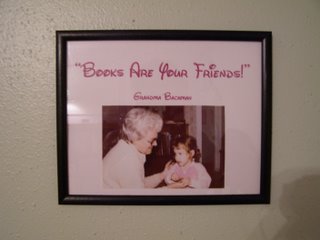Well, the time has come for a good critical hack at Louisiana College, that fine Southern Baptist institution in Pineville, Louisiana. Where the smell is always the paper mill. Where a fun evening is driving the Alexandria traffic circle until you get sick. Where the administration has lost all its marbles.
I want to define here just a little bit of what I understand as the intellectual suicide happening at LC. I will not summarize the convoluted and complex history here, for you can find lots of reliable information about it (even proudly on their own website) online. Know for now that it is a veritable mockery of academic freedom and religious education, Truth and the liberal arts, faculty responsibilities and administrative power. And know that I am worried about it. Here's why.
In The Abolition of Man, CS Lewis critiques the authors of a certain composition book; with admirable academic restraint, he calls the text only The Green Book and the authors only Gaius and Titius. I have discussed that book's main philosophical problem earlier but want to focus on a particular aspect of Lewis' argument here as it may apply to recent policies at LC.
Early in his first lecture, Lewis claims that good literature is of utmost importance when teaching good writing and general discernment, but Gaius and Titus just show you the bad and complain about it, never showing the good. In fact, if they researched more carefully, they would find excellent literature (ie well-styled prose) committing the same "sins" (ie pathetic fallacies) their supposed bad prose does. They're missing the point they should make, instead hugely leaping to claim that all value judgments are unreasonable and contemptible (6-9).
Gaius and Titius may have done all this rather accidentally (Lewis gives them the benefit of the doubt and supposes they have), but they have nevertheless slipped into the teaching of philosophy when they aimed only to teach composition and literature. Lewis supposes they have done so for the following reasons: 1) literary criticism is hard, so they have done an easier thing unwittingly, 2) they have misdiagnosed the real educational need, which is not actually to temper the overemotional but to awaken the lazy and apathetic, and 3) they are in a peculiar educational moment that is moving outside the Tao (12-21).
No matter why they have done it, though, you cannot actually do what Gaius and Titius think they want to do: that is, you cannot say "quit making value judgments," then pump information into a student and expect him to respond well. That is brainwashing, not education. We need trained emotions (not vacuumed ones) in order to make good intellectual decisions, for we cannot convince others by reasonable arguments alone to be "good" (23-24). If we gain much knowledge and do not have trained emotions, we all turn into Weston and Devine in Out of the Silent Planet: "It is not excess of thought but defect of fertile and generous emotion that marks them out" (Abolition 25).
And so we see that Gaius and Titius seem to have taken over Louisiana College.
Let us consider an example of LC's own prose: "The Integration of Faith and Learning at Louisiana College" as presented by Dr. Charles Quarles, LC's Vice President for Integration of Faith and Learning, at a chapel service last November. In this archly conservative attempt at pedagogical philosophizing, Dr. Quarles suggests that one cannot teach any subject without making an argument for its absolute truth or falsehood. He also suggests that every classroom experience is an exercise in belief. But he has gone too far, for comparing instruction about simple addition to instruction about world religions is simply ridiculous.
Now, I would agree (indeed in the Van Tillian tradition) that until by grace we resolve our right and humble position within the redemptive narrative that God is telling as our global history—particularly, until our fallen brains are redeemed into right logic—we do not think appropriately. Everything we do and think is tainted by sin. The unredeemed might as well think 2 + 2 = 5 because our thought processes are naturally and essentially that much off base.
And I, perhaps with Dr. Quarles, am concerned about the accidental and overt deconstruction that remains popular in many contemporary college classrooms—that is, the diligent attempt by some professors to make their students think that any belief system, especially any Christian one, they brought to campus is naïve and unintellectual.
However, I also remain committed to the liberal arts, believing that a liberal arts education is actually the best sort for a Christian, for in such broad interdisciplinary learning, we see and love the interconnectedness of God's world, the need for creative problem-solving in every corner of every heart and every jungle, and our obligation to be good temporary citizens of this globe.
Thus, I bristle at Dr. Quarles' claims. Fine if he wants to ensure a pristine Christian education for those precious LC students, but I would argue that educated and compassionate global Christians need to know about world religions as much as they need to know math. But presenting facts about other religions does not have to be followed by an apology for why they are or are not correct. No one ever apologizes for addition: most folks just take it as a fact that 2 + 2 indeed equals 4, just as we ought to take it as fact that there are Buddhists in the world and they believe and practice certain things. The value question, about whether or not one ought to be a Buddhist, is a quite separate question indeed. After all, just because I believe 2 + 2 = 4 does not make me a mathematician, and no one ever tried to make me one; so too, believing that Buddhists exist and do certain things does not make me a Buddhist or even the target of Buddhist conversion experts.
Part of the problem with Dr. Quarles' argument is that he does not recognize that the issues between math and religion are different; therefore, you cannot compare pedagogy about them in a value argument. If the Gospel is so powerfully correct (as Romans 1.16 claims), then we need not be so defensive about all this as Dr. Quarles would like.
Now, Dr. Quarles goes on to make other disturbing arguments—one about how Christian colleges should only teach texts that explicitly promote the supremacy of Christ (an affront to the critical study of religion but also an exclusion of any other discipline), another about the sufficiency of Jesus to teach us all truth (which may be correct regarding spiritual things but not, say, regarding poetic meter). But throughout, he compares apples and oranges, and all to the philosophical detriment of education at-large because he fails to understand that one can know something and not agree with it. In fact, I would argue that any educated person needs such knowledge. I have read plenty of books espousing positions I despise—from the unsubstantiated articulation of poor theology to the fictional celebration of licentiousness—and find such reading overall profitable. But the argument Dr. Quarles makes would drop most books from my bookshelves: no more Hemingway (some of his characters curse and run with bulls), no more Shakespeare (murder, drunkenness, wife-swapping, lying), and probably every contemporary novelist and poet would be out, plus who knows how many philosophers.
Furthermore, if you follow this argument, you must decide that education as a whole is really a bad idea, because the only thing we need is heart-felt evangelism. Thus, his philosophy is revealed as that same value-debunking and literature-despising mess we heard from Gaius and Titius. Remember that those authors of The Green Book erred because they accidentally taught philosophy instead of just composition, and they did so because what they should have done was really harder than what they did, which followed from misdiagnosing the real need in the first place. So too, Dr. Quarles has done the easier thing (label an enemy and tell people what to think about it) rather than the hard thing (compose a Christian educational philosophy that actually helps people learn and invite scholarly dialogue about it). And he has misdiagnosed the real need, which is to educate individuals to think in God-honoring ways, not withholding books out of fear that students might believe them but actually teaching books out of confidence that students might think and act better because of them.
Surely Dr. Quarles fears that he must temper overemotional students who might just blindly follow Scott Peck down some random road, when what he really needs to do is awaken the lazy and apathetic with invigorating truth and stimulating dialogue and active service. Just telling students "Buddhism is not true" and making sure they can regurgitate that on an exam will not make them good college graduates. And it will not make them lovers of Jesus either.
So, I think Dr. Quarles needs to read The Abolition of Man. But maybe he does not want to. In it, Lewis does not make a clear evangelical proposition but argues simply for an objective value-driven worldview, so that's one strike against it. Lewis obviously interprets the Tao through a Christian lens, but the book does not articulate the precise connection. And watch out for those other books where Lewis suggests that some planets do not need Jesus (because their creatures are not bent like we humans are), that heaven is a hard place, and that real friendship is about smoking cigars and drinking warm beer while talking mythology. Oh, and heaven forbid that LC should read that later Lewis book A Grief Observed, for there he acknowledges (from what I would argue is a position of faith, tough faith) that suffering is a terrible reality for which most of us are honestly tempted to blame God. Take away his wife and you get hard language from Jack. But don't tell LC. That alone would probably get the crusty Anglican banned from their bookstore.













 But on to the fashion report. Louisiana governor Blanco looked so old and nanny-like, maybe because Bush spent so little time commenting on hurricane relief and she worried herself into old age right there in the chamber. And then Virginia governor Tim Kaine almost delievered the Democrats' response. . . . Oh wild eyebrow! Oh liftable left! What a caterpillar.
But on to the fashion report. Louisiana governor Blanco looked so old and nanny-like, maybe because Bush spent so little time commenting on hurricane relief and she worried herself into old age right there in the chamber. And then Virginia governor Tim Kaine almost delievered the Democrats' response. . . . Oh wild eyebrow! Oh liftable left! What a caterpillar.